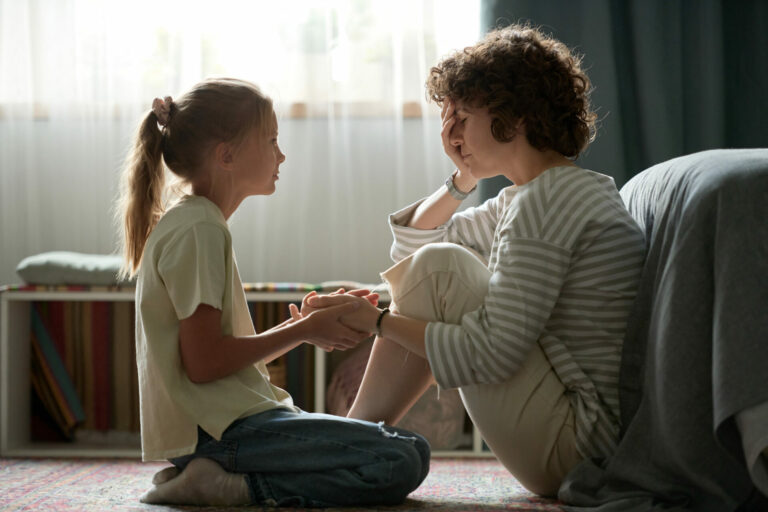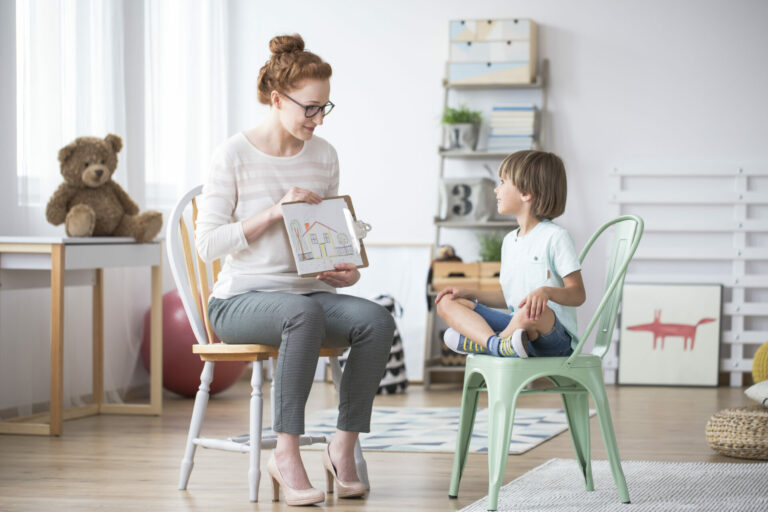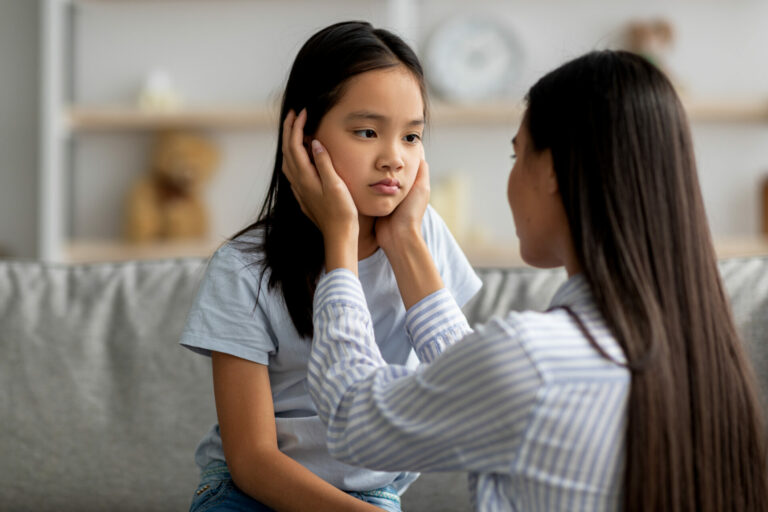How To Model Healthy Coping Skills to Your Kids
By Sarah Earles MS, LPC, NCC | February 16, 2024
You are trying to do it right. You really are! But sometimes as a parent, you just mess up. You feel terrible about it. You might worry that you are harming your children. It is good that you are concerned, but also good that you are an imperfect parent. Your children need to see you do things wrong sometimes.
The reason your children need to see you do things wrong sometimes is because it normalizes imperfection. It shows children that it is human to struggle and to do things wrong (Schwartz, 2017). It allows you, as the parent, to model re-dos (Winters & Herron, 2021). It promotes resilience, rather than guilt and shame (Flatley, n.d.). It can help your child acknowledge his or her inherent worth, apart from actions and behaviors.
Your children need to see you do things wrong because this allows you to practice attunement. Although you do not purposely do things wrong, when you do, it allows you to see your child’s hurt and to tell them that you see it (Gobbel, 2021; Gobbel 2022). Attunement helps grow healthy attachment, and that in turn, helps grow co-regulation, or the ability to help a child when in distress (Attuned Families, n.d.). This co-regulation helps build “stress resilience” (Gobbel, 2021). Mis-attunement helps accentuate the value and strength of the relationship.
Your children need to see you do things wrong because it provides opportunities for repair. It can help teach them that it is okay to mess up, and to ask for forgiveness and do-overs. This builds respect and trust within the relationship (Flately, n.d.). It can also model for children how to ask for help (Schwartz, 2017). All of these benefit the relationship.
Your children also need to see you do things wrong because they need to learn healthy coping skills. You can model healthy coping skills all day long, but until your children see you practice them, they may not see them as worthwhile (Klein-Baer, 2022). Re-dos are a coping skill (Winters & Herron, 2021). Attunement is a skill. Repair is a skill. So are deep breathing, exercise, mindfulness, and more. Most of these things do not come naturally to children, but parents can teach these skills, most powerfully in those moments when parents need to practice the skills themselves.
Your children need to see you do things wrong sometimes. They don’t need to see you choose to do things wrong. They need to see you mess up, practice healthy coping skills, and recover. Like it or not, you are a model for your children. You may do things wrong, but you can use those mess-ups as a power for children: to teach children coping skills and help them become more healthy and happy individuals overall.
Lecturas recomendadas
You are trying to do it right. You really are! But sometimes as a parent, you just mess up. You feel terrible about it. You might worry that you are harming your children. It is good that you are concerned, but also good that you are an imperfect parent. Your children need to see you do things wrong sometimes.
The reason your children need to see you do things wrong sometimes is because it normalizes imperfection. It shows children that it is human to struggle and to do things wrong (Schwartz, 2017). It allows you, as the parent, to model re-dos (Winters & Herron, 2021). It promotes resilience, rather than guilt and shame (Flatley, n.d.). It can help your child acknowledge his or her inherent worth, apart from actions and behaviors.
Your children need to see you do things wrong because this allows you to practice attunement. Although you do not purposely do things wrong, when you do, it allows you to see your child’s hurt and to tell them that you see it (Gobbel, 2021; Gobbel 2022). Attunement helps grow healthy attachment, and that in turn, helps grow co-regulation, or the ability to help a child when in distress (Attuned Families, n.d.). This co-regulation helps build “stress resilience” (Gobbel, 2021). Mis-attunement helps accentuate the value and strength of the relationship.
Your children need to see you do things wrong because it provides opportunities for repair. It can help teach them that it is okay to mess up, and to ask for forgiveness and do-overs. This builds respect and trust within the relationship (Flately, n.d.). It can also model for children how to ask for help (Schwartz, 2017). All of these benefit the relationship.
Your children also need to see you do things wrong because they need to learn healthy coping skills. You can model healthy coping skills all day long, but until your children see you practice them, they may not see them as worthwhile (Klein-Baer, 2022). Re-dos are a coping skill (Winters & Herron, 2021). Attunement is a skill. Repair is a skill. So are deep breathing, exercise, mindfulness, and more. Most of these things do not come naturally to children, but parents can teach these skills, most powerfully in those moments when parents need to practice the skills themselves.
Your children need to see you do things wrong sometimes. They don’t need to see you choose to do things wrong. They need to see you mess up, practice healthy coping skills, and recover. Like it or not, you are a model for your children. You may do things wrong, but you can use those mess-ups as a power for children: to teach children coping skills and help them become more healthy and happy individuals overall.
Lecturas recomendadas
References
Attuned Families. (n.d). Connecting with your child through the power of attunement. https://www.attunedfamilies.com/blog/power-of-attunement
Flatley, K. (n.d.). Kid’s don’t want perfect parents, they just need real ones. Self-sufficient kids. https://selfsufficientkids.com/imperfect-perfect-parents/
Gobbel, R. (Host). (2021, January 18). Imperfect parenting is perfect (no. 12). [Audio podcast episode]. In The baffling behaviors show. https://robyngobbel.com/imperfectparenting/
Gobbel, R. (Host). (2022, June 7). Mark Vatsaas helps parents feel seen and heard (no. 16). [Audio podcast episode]. In The baffling behaviors show. https://robyngobbel.com/seenandheard/
Klein-Baer, R. (2022, August 18). How to model healthy coping skills. Child mind institute. https://childmind.org/article/how-to-model-healthy-coping-skills/
Schwartz, K. (2017, August 17). Normalize setbacks by asking your kids for advice when you struggle. KQED. https://www.kqed.org/mindshift/49028/normalize-setbacks-by-asking-your-kids-for-advice-when-you-struggle
Winters, B., & Herron, A. (2021, August 22). Correcting behavior through redos. Nurturing change: Equipping caregivers to heal. https://nurturing-change.org/blog/f/correcting-behavior-through-redos
References
Attuned Families. (n.d). Connecting with your child through the power of attunement. https://www.attunedfamilies.com/blog/ power-of-attunement
Flatley, K. (n.d.). Kid’s don’t want perfect parents, they just need real ones. Self-sufficient kids. https://selfsufficientkids.com/imperfect-perfect-parents/
Gobbel, R. (Host). (2021, January 18). Imperfect parenting is perfect (no. 12). [Audio podcast episode]. In The baffling behaviors show. https://robyngobbel.com/imperfect parenting/
Gobbel, R. (Host). (2022, June 7). Mark Vatsaas helps parents feel seen and heard (no. 16). [Audio podcast episode]. In The baffling behaviors show. https://robyngobbel.com/seenandheard/
Klein-Baer, R. (2022, August 18). How to model healthy coping skills. Child mind institute. https://childmind.org/article/how-to-model-healthy-coping-skills/
Schwartz, K. (2017, August 17). Normalize setbacks by asking your kids for advice when you struggle. KQED. https://www.kqed.org/mindshift/49028/ normalize-setbacks-by-asking-your-kids-for-advice-when-you-struggle
Winters, B., & Herron, A. (2021, August 22). Correcting behavior through redos. Nurturing change: Equipping caregivers to heal. https://nurturing-change.org/blog/f/correcting-behavior-through-redos




